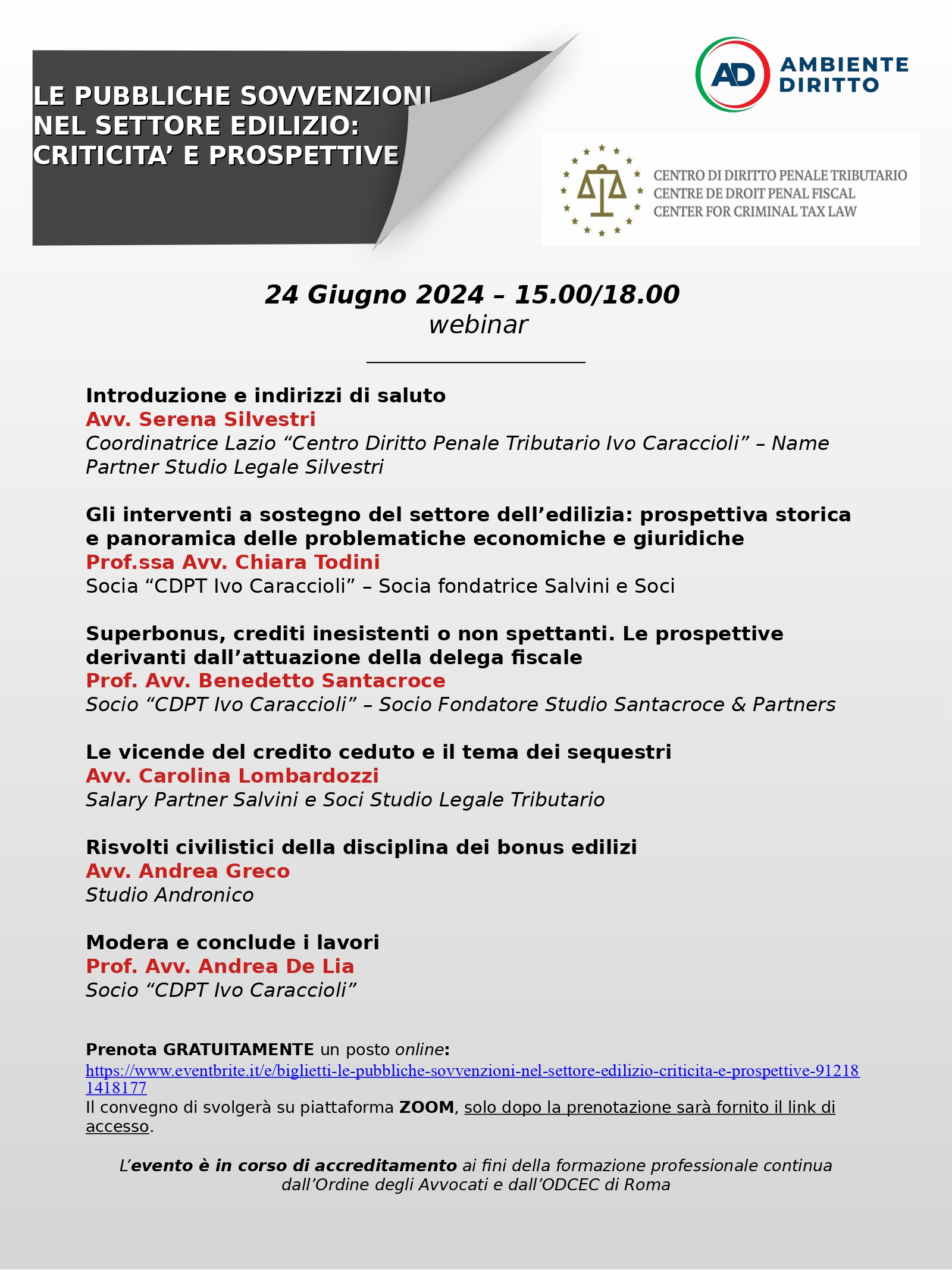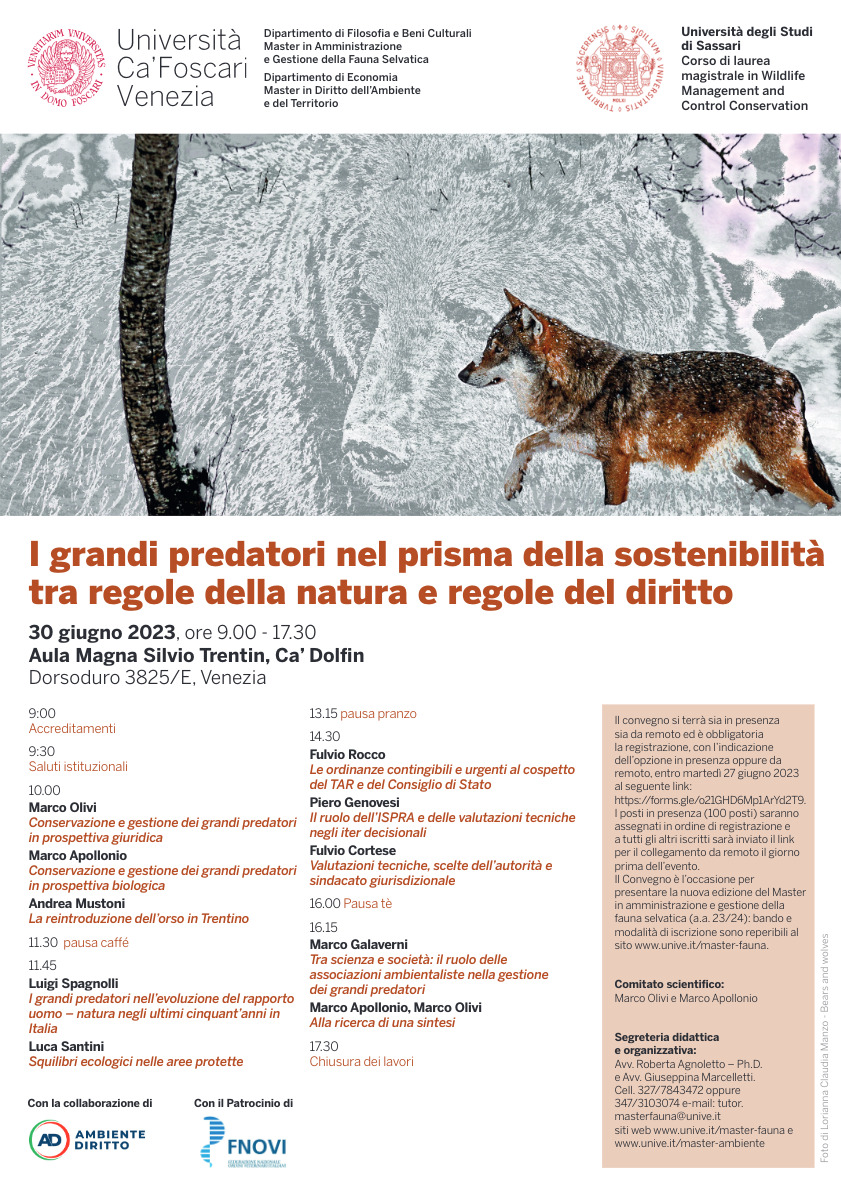______________ AMBIENTEDIRITTO ______________
PUBLIC PROCUREMENT AND SUSTAINABILITY: WTO RULES, GENERAL PRINCIPLES AND THE PRACTICE OF STATES’ AUTONOMY.
Giovanni Fabio Licata
Abstract (ita): recentemente il tema della sostenibilità ha conosciuto una attenzione crescente, anche in ambito accademico. Tale interesse è proprio a diversi campi di ricerca, tra cui la filosofia, le scienze economiche, la sociologia e le scienze politiche. Eppure il concetto di sostenibilità è di per sé poco chiaro, e infatti se ne è fatto e se ne continua a fare un uso diverso. Inizialmente, in realtà, ci si concentrava soprattutto sul rapporto tra umanità e natura, ed erano principalmente considerati i limiti all’attività umana idonei a preservare l’ambiente e le risorse naturali, soprattutto al fine di non compromettere la capacità delle generazioni future di soddisfare le proprie necessità. Successivamente, però, l’idea di sostenibilità è stata più ampiamente raffigurata, includendosi all’interno della stessa obiettivi sociali e politici, come la riduzione delle disuguaglianze, la dignità della vita umana, il contrasto alle discriminazioni e, più in generale, la qualità della vita. Anche in ambito giuridico il tema della sostenibilità sta ricevendo particolare attenzione nel campo del diritto, e si constata il consistente aumento della letteratura sull’argomento. Lo scopo di questo lavoro è quello di procedere innanzi con il discorso giuridico sulla sostenibilità, non semplicemente considerando i limiti che le norme legali possono imporre alle attività umane ed economiche, ma invece sottolineando il ruolo degli Stati e delle amministrazioni pubbliche nel favorire la sostenibilità attraverso “azioni positive”. Il focus dell’analisi si concentra quindi sugli appalti pubblici, considerati quale strumento essenziale per supportare la sostenibilità attraverso l’uso strategico della domanda pubblica. L’articolo muove dall’idea che i problemi legati alla sostenibilità sono di rilevanza globale, e quindi devono necessariamente essere analizzati da tale punto di vista. Tuttavia, l’articolo considera anche l’importanza di ogni singola azione (“locale”) al fine di supportare la sostenibilità (a livello globale). Si pone dunque una rinnovata attenzione alla relazione tra problemi globali e problemi locali, considerandosi l’attività (legislativa e amministrativa) degli Stati come fondamentale al fine di incidere anche sulla soluzione dei problemi globali relativi alla sostenibilità. L’articolo cerca di specificare il significato giuridico di sostenibilità, ragionando su documenti giuridici prodotti a livello internazionale e cercando di “estrarre” da essi alcuni fondamentali principi. Essi possono rappresentarsi utili al fine di interpretare le leggi nazionali, secondo un ragionamento circolare che riconsidera il ruolo dei singoli Stati nel promuovere “autonomamente” la sostenibilità. L’articolo analizza quindi l’impatto in tale ambito della normativa internazionale relativa ai contratti pubblici, proponendo argomenti utili al fine di valorizzarne l’applicazione, e altresì affermando la necessità di garantire tramite la stessa una connessione funzionale tra sostenibilità e innovazione.
Abstract (eng): recently there has been a growing concern over the topic of sustainability, which also gained traction in scholarly work and university life. Such interest has been connected to several field of research, including philosophy, economic sciences, sociology and political sciences. Yet the concept of sustainability is in itself unclear, and in fact there are different usages of the same. Indeed, at the beginning the focus was on the relationship between humanity and nature, and were mainly considered limits to the human being apt to preserve the environment and natural resources, and so gain the needs of the present without compromising the ability of future generations to meet their own needs. Later, the idea of sustainability has been widely intended, and it now includes social and political objectives, such as the reduction of inequalities, the dignity of living, the contrast to discriminations and, more in general, the quality of life. Sustainability is also receiving attention in the realm of Law, and there is quite a literature progressively emerging on the topic. The aim of the article is to reinforce the legal discourse on sustainability, not simply considering the limits that legal norms may impose on human and economic activities but instead emphasizing the role of States and Public Administrations in fostering sustainability by the means of positive actions. The focus of the article will be on public procurement, considered as an essential instrument to support sustainability from the demand side. The article moves on from the idea that the problems related to sustainability are of global relevance, and thus they necessarily need to be analyzed from that viewpoint. However, the article also considers the importance of each singular action for supporting sustainability (globally). Then there is a fresh attention over the relationship between global and local problems, and the link(s) proposed is(are) useful to consider that States’ legal activities are fundamental to support the solution of global issues (as well). The article tries at first to specify the legal meaning of sustainability, working on legal documents produced at the international level and trying to “extract” from them some fundamental legal principles about sustainability. These principles may be useful in enriching the interpretation of national laws, or even support the role of States’ autonomy in fostering sustainability. Then the article analyzes the impact of supranational procurement law on sustainability (both at the international and regional level, including the European Union), considering arguments to find the right balance between a fair obtainment of sustainability goals and the related issues of (potentially) discriminatory practices. Finally, the article affirms the necessity to secure a linkage between sustainability and innovation through procurement law, analyzing the most current issues and perspectives in this field.
INDEX: 1. The Legal Understanding of the Sustainability Concept. 2. Sustainability Goals and the Importance of Public Procurement. 3. Fostering Sustainability through Public Procurement: The Impact of Global Regulation and the Practice of States. 4. The Universality of Sustainability and the Transnational Effects of Local Choices. 5. Sustainability and States’ Legislative and Administrative Decision-making.
Scarica allegato





 AMBIENTEDIRITTO.IT EDITORE
AMBIENTEDIRITTO.IT EDITORE